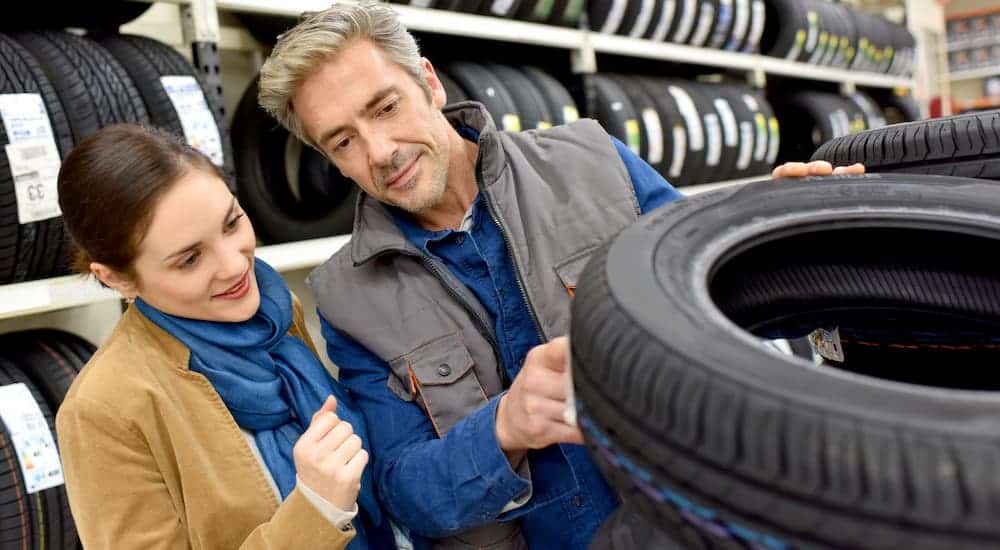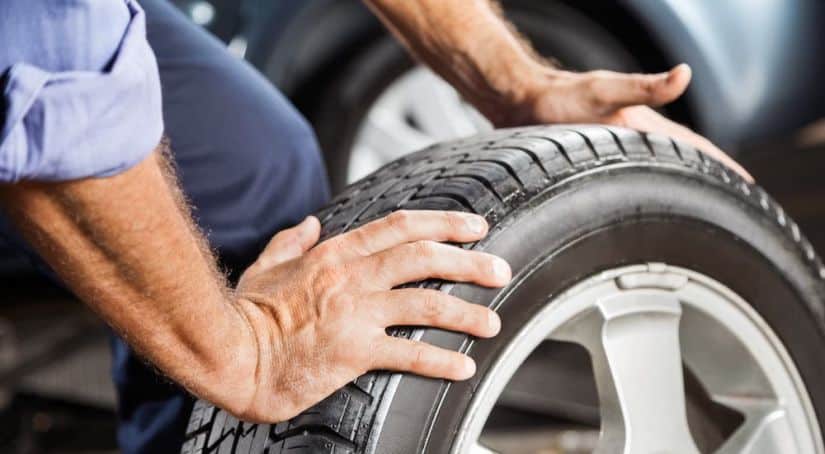When you’re doing pretty much any kind of shopping, there are two crucial things to figure out: the right item and the right merchant. Of course, you need to make sure you get the thing you need (whether that’s a car, tires, a computer, or new phone), but you also want to make sure you buy it from a business that treats you well, puts your needs first, and appreciates you as a customer. That’s not always easy, but finding the right tire shop can make a big difference not only in terms of price but also with regard to the overall value of the tires and other services.
There are several different types of businesses you can buy tires from, including big-box warehouse retailers, dedicated tire shops, and car dealerships. Choosing the right kind of business can make your life a lot easier overall, but that comes down to knowing what to look for and watching out for someone that doesn’t treat you properly as a customer. Today, we’re going to go over some tips you should keep in mind when looking for a tire shop that you can trust, and some things to watch for that tell you it’s time to go somewhere else.
Tip #1 – Shop Early to Avoid High Pressure
This is good advice for any purchase, really, but something to particularly consider when it comes to shopping for tires and looking for a good tire shop. When you’re buying something, as a customer, your most significant strength is that you can always walk away from a sale and take your business somewhere else. If you find yourself in an emergency, such as a dangerously low tire, then you lose some of that power, and you’re at the mercy of whatever business will help you out the soonest.
To avoid this, make sure you check the tread on your tires regularly, testing the depth with a quarter. If you can see the top of the President’s head, then it’s time to start tire shopping. A lot of people suggest using a penny, but this gives you much less time to react. So, begin with a quarter to give yourself more time for shopping and comparing what’s out there.
Tip #2 – Do Some Research

Before you show up at any tire shop looking for what you need, you need to know how to shop for tires and what’s out there. Do some research on tires, learn about different brands, types, sizes, etc. Learn what the codes on tires mean and how to read them – the more you know, the better prepared you are to interact with a salesperson at a tire shop.
Also, you should do some research on tire shops in your area. Look for reviews online from other people to see what their experiences were when going to those businesses. Talk to friends, family, coworkers, and whoever else you trust to see where they go when they need tires or where to avoid. All of this information helps you form a greater overall sense of where to shop.
Tip #3 – Compare Prices and Brands
This is part of that research step but really deserves its own focus. Look at different brands of tires; look at reviews of them to see how they compare in terms of quality. Then, look at the prices for those tires from the manufacturer and different retailers. There is a ton of information available to you online these days, which gives you everything you need to be able to walk into a tire shop and know if they’re overcharging you for their tires. This also lets you see how different manufacturers compare.
Just remember that with tires, like so much else, you get what you pay for. Inexpensive tires are typically made from cheaper materials and often won’t last you as long. You might save some money now, but end up paying more to replace them much sooner than with better tires.
Tip #4 – Look at the Tires
When you actually go to a tire shop and start working with a salesperson, look at the tires they have on display. More importantly, physically look at the tires they are going to put on your vehicle. You want to make sure they are actually giving you what you paid for in terms of brand, type, and quality. Be sure to check the date on the tires. Even when they’re not used, tires have a shelf life of about five to ten years. If a shop tries to sell you tires that are already several years old, then you’ll be replacing them in just a couple of years, even if you don’t drive very much. This is a sign that you need to choose a different tire shop.

Tip #5 – Consider Overall Value and Services
While there are big-box warehouse stores that sell tires, and businesses that specialize in tire sales and replacements, consider all of your options when picking your tire shop. It can make your life a lot easier to choose a place that can do more for you all at the same time, so you don’t have to make multiple trips to different businesses, to have your car serviced. This is one of the reasons many people choose a reliable dealership for their tire shop.
At a dealer, you can buy new tires and have them installed while other work is being done, such as an oil change, alignment adjustment, or other services. Car maintenance isn’t exactly the most fun thing in the world, so being able to have everything done at once is incredibly valuable. Building a long-term relationship with a dealership can be a great way to have a car-seller and service center you can trust all in one location.
Tip #6 – Watch Out for Up-Sells
Whether it’s a larger order of French fries or warranty protection on your phone, just about every business these days will try to up-sell you on something. Sometimes these services or offers are worth taking (who doesn’t want more fries?), and sometimes they offer very little for what you pay. When working with a tire shop, watch out for any up-sells they try to include and consider them carefully before making a purchase.
Extended or additional warranties on tires are not often worthwhile – always read the fine print on this type of thing before paying for it. Nitrogen filling for your tires can help them last longer, but it should be either free or for a small fee, not a huge expense. If they offer to bundle new tires with other services, like an oil change, then ask about discounts for getting all of it done at once.
Tip #7 – Build a Relationship
Ultimately, trust your instincts when doing business with any tire shop and pay attention to how they treat you. You’ll need new tires again in the future and other maintenance for your vehicle, so you want to find a business, you can build a long-term relationship with. This will make your life easier for years to come, and remove some of the uncertainty from other service needs you have for your vehicle.



